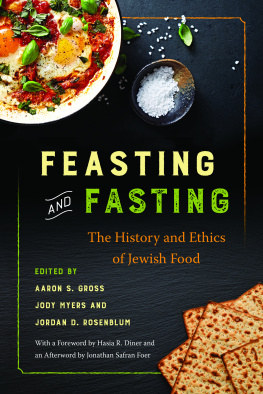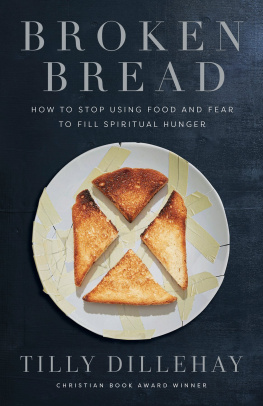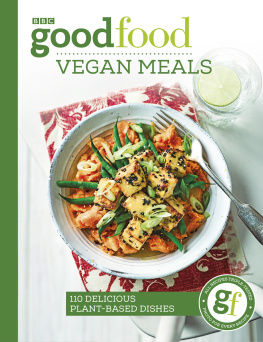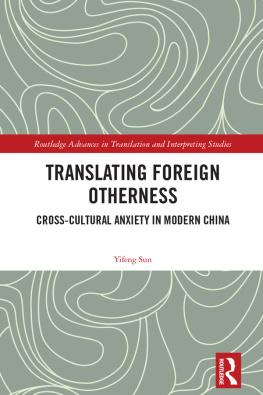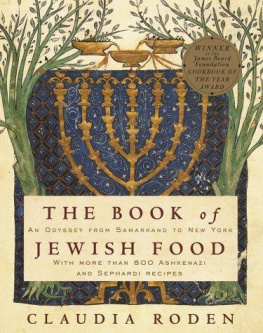THE S. MARK TAPER FOUNDATION
IMPRINT IN JEWISH STUDIES

BY THIS ENDOWMENT
THE S. MARK TAPER FOUNDATION SUPPORTS
THE APPRECIATION AND UNDERSTANDING
OF THE RICHNESS AND DIVERSITY OF
JEWISH LIFE AND CULTURE
The publisher gratefully acknowledges the generous support of the Jewish Studies Endowment Fund of the University of California Press Foundation, which was established by a major gift from the S. Mark Taper Foundation.
The publisher also acknowledges financial assistance provided by the Columbia University Institute for Israel and Jewish Studies.
Foreigners and Their Food
Foreigners and
Their Food
Constructing Otherness in Jewish,
Christian, and Islamic Law

David M. Freidenreich

University of California Press, one of the most distinguished university presses in the United States, enriches lives around the world by advancing scholarship in the humanities, social sciences, and natural sciences. Its activities are supported by the UC Press Foundation and by philanthropic contributions from individuals and institutions. For more information, visit www.ucpress.edu .
University of California Press
Berkeley and Los Angeles, California
University of California Press, Ltd.
London, England
2011 by The Regents of the University of California
Library of Congress Cataloging-in-Publication Data
Freidenreich, David M., 1977.
Foreigners and their food : constructing otherness in Jewish, Christian, and Islamic law / David M. Freidenreich.
p. cm.
Includes bibliographical references and index.
ISBN 978-0-520-25321-6 (cloth, alk. paper)
1. FoodReligious aspectsComparative studies. 2. Identification (Religion)Comparative studies. 3. ReligionsRelations. 4. JewsDietary laws. 5. MuslimsDietary laws. 6. FoodReligious aspectsChristianity. I. Title.
BL65.F65F74 2011
201.5dc22
2011006099
Manufactured in the United States of America
20 19 18 17 16 15 14 13 12 11
10 9 8 7 6 5 4 3 2 1
In keeping with its commitment to support environmentally responsible and sustainable printing practices, UC Press has printed this book on Cascades Enviro 100, a 100% post consumer waste, recycled, de-inked fiber. FSC recycled certified and processed chlorine free. It is acid free, Ecologo certified, and manufactured by BioGas energy.
To all those with whom I have shared meals
and, especially, to Sara
CONTENTS
PART TWO. JEWISH SOURCES ON FOREIGN FOOD RESTRICTIONS:
MARKING OTHERNESS
PART THREE. CHRISTIAN SOURCES ON FOREIGN FOOD RESTRICTIONS:
DEFINING OTHERNESS
PART FOUR. ISLAMIC SOURCES ON FOREIGN FOOD RESTRICTIONS:
RELATIVIZING OTHERNESS
ILLUSTRATIONS
PREFACE
I love food. I enjoy eating but, even more, I love preparing food and sharing it with others. Many of my fondest memories and formative experiences are associated with meals, and my closest relationships have become so in part through the regular sharing of food. I have been fortunate enough to grow up and live in committed, supportive Jewish communities, and many of my meals have taken place within these circles. I have also been blessed with opportunities to share food with Christians and Muslims in settings ranging from relaxed Shabbat dinners at my home to intense conversations in an Arab classmates dorm room over baklava and Iraqi coffee (not to be confused with the identical substance called Turkish coffee). This study is an exploration of a topic about which I am passionate: interaction with foreigners over food.
I should make clear from the start that I proudly practice what many of the authorities whom I study preach against. Although I am an ordained rabbi and consider myself an observant Jew, I eat food prepared by non-Jews and I share meals with non-Jews despite traditional norms prohibiting such activities. I disagree on principle with one of the primary motivations underlying the laws which I study. Religious authorities articulate foreign food restrictions as a means of thwarting efforts to establish connections across traditional boundaries, efforts that I believe are deeply enriching and vitally important. This study, somewhat subversively, demonstrates the connectedness of efforts by religious authorities to disconnect from one another, and it also demonstrates the value of making connections between their attitudes toward each other.
This book is not, however, a platform for my arguments in favor of commensality with religious outsiders. I am interested in understanding and explaining why the authorities I study articulate the restrictions they do, how these restrictions have developed over time, and how they relate to their counterparts in other religious traditions. The sources I examine continue to influence attitudes toward foreigners into the modern period and even the present day. If we are to understand one another better, with or without the sharing of food, we need to understand these sources on their own terms.
The bias I bring to this study manifests itself in the comparative approach I employ when interpreting religious texts. This approach is contrary toyet complementsthe traditional method of understanding such texts on the basis of sources found within the traditions own canon and, in historically oriented circles, on the basis of the context in which these canonical texts were produced. This study is premised on the conviction that understanding sources from multiple traditions helps us understand the norms of any single tradition more clearly. I believe that the results of this study demonstrate the validity of its premise.
This book has been a challenge to write not only because it explores a broad and diverse array of sourcesJewish, Christian, and Islamic texts from their scriptural foundations through the Middle Agesbut also because it is intended for a broad and diverse array of readers. I imagine my audience to consist of individuals knowledgeable about some facets of the material I address but unfamiliar with most: students and scholars of Judaism, of Christianity, or of Islam with minimal background in other religious traditions, as well as students and scholars of comparative religion, law, and food studies with minimal exposure to premodern religious ideas and texts. My goal has been to write in a manner that is simultaneously accessible to all readers, including nonacademics, and sophisticated enough to engage the interest of experts. I have endeavored to keep citations and technical discussions to a minimum; in many instances, I refer readers interested in the more detailed discussion of a particular subject matter to articles that I have written for specialists. There will, however, no doubt be times when a reader feels that the discussion found this book is either unduly detailed or unnecessarily elementary, and I beg this readers indulgence. As the bishop Stephen of Tournai (d. 1203) wrote in the introduction to a treatise intended both for lawyers and theologians, If you invite two guests to dinner, you will not serve the same fare to those who demand opposite things. With the one asking for what the other scorns, will you not vary the dishes, lest either you throw the dining room into confusion or offend the diners? The value of bringing diverse readers to a common intellectual table, I believe, warrants the efforts to appeal to diverse tastes.
Next page

